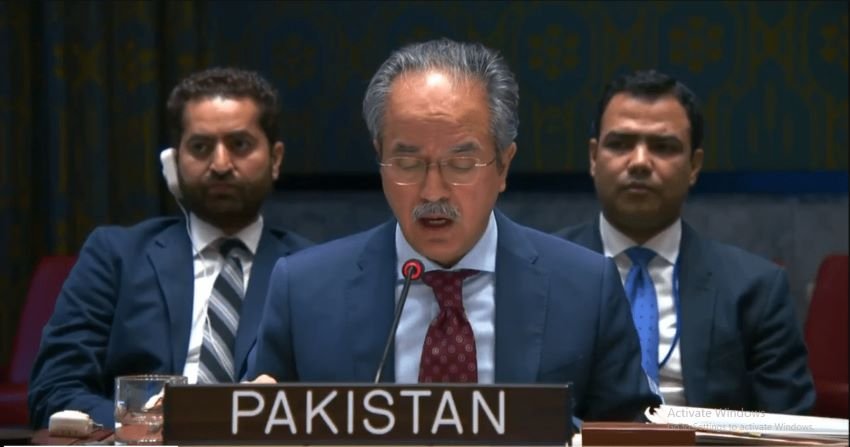United Nations (TDI): Pakistan has urged Afghanistan to take concrete steps to prevent its territory from being used as a staging ground for terrorism, particularly by the Tehrik-e-Taliban Pakistan (TTP), which Islamabad says poses a serious threat to its national security.
Addressing the UN Security Council during a debate on Afghanistan, Pakistan’s Ambassador Asim Iftikhar Ahmad highlighted that the TTP, an UN-listed terrorist group with an estimated 6,000 fighters, continues to operate from sanctuaries near the Pakistan-Afghanistan border.
“Terrorism originating from Afghan soil remains a direct threat to its neighbors, especially Pakistan,” he told the 15-member Council, warning that the TTP and allied militant networks were using ungoverned spaces in Afghanistan to regroup and plan attacks.
Ambassador Asim also expressed concern over the wider regional fallout from recent events in Iran, especially following Israeli airstrikes. He noted that any deterioration in Iran’s security could trigger a fresh wave of refugees, placing additional pressure on neighboring states like Pakistan and Afghanistan.
Giving specific examples, the envoy said that in April, Pakistani security forces intercepted and killed 54 TTP fighters attempting to cross into Pakistani territory. He further warned that the TTP is not acting alone.
“There is credible evidence that TTP has been working with other groups like the Baloch Liberation Army (BLA) and its Majeed Brigade, targeting strategic infrastructure and economic projects inside Pakistan,” he said.
Read More: Pakistan Warns of TTP-Al-Qaeda Nexus
Pakistan, he explained, has also seized large quantities of advanced weapons left behind by foreign forces during their withdrawal from Afghanistan, which have since been recovered from militants trying to infiltrate the country.
Turning to the broader humanitarian situation, Ambassador Asim noted that Pakistan has long hosted millions of Afghan refugees. Since August 2021, following the Taliban takeover of Kabul, around one million more undocumented individuals have entered Pakistan, creating new pressures on local systems. He called on the global community to help shoulder the burden.
On the economic front, he said Pakistan supports efforts to help stabilize Afghanistan, including reviving its banking sector and exploring legal options to unlock frozen Afghan assets.
Despite limited resources, Pakistan remains engaged with Afghan authorities, he said, pointing to recent efforts led by Deputy Prime Minister and Foreign Minister Ishaq Dar. Islamabad has continued to pursue trade links and regional connectivity projects, while encouraging dialogue on multiple levels.
Read More: TTP Emerges as Global Terror Umbrella: Pakistan
Ambassador Asim welcomed the UN-led Doha Process and called for a more comprehensive framework for engagement with Afghanistan’s de facto rulers, one that addresses both international expectations and regional concerns.
“Pakistan stands ready to play a positive and active role in helping Afghanistan move toward lasting peace,” he concluded.
Farkhund Yousafzai is an Associate Editor at The Diplomatic Insight.



